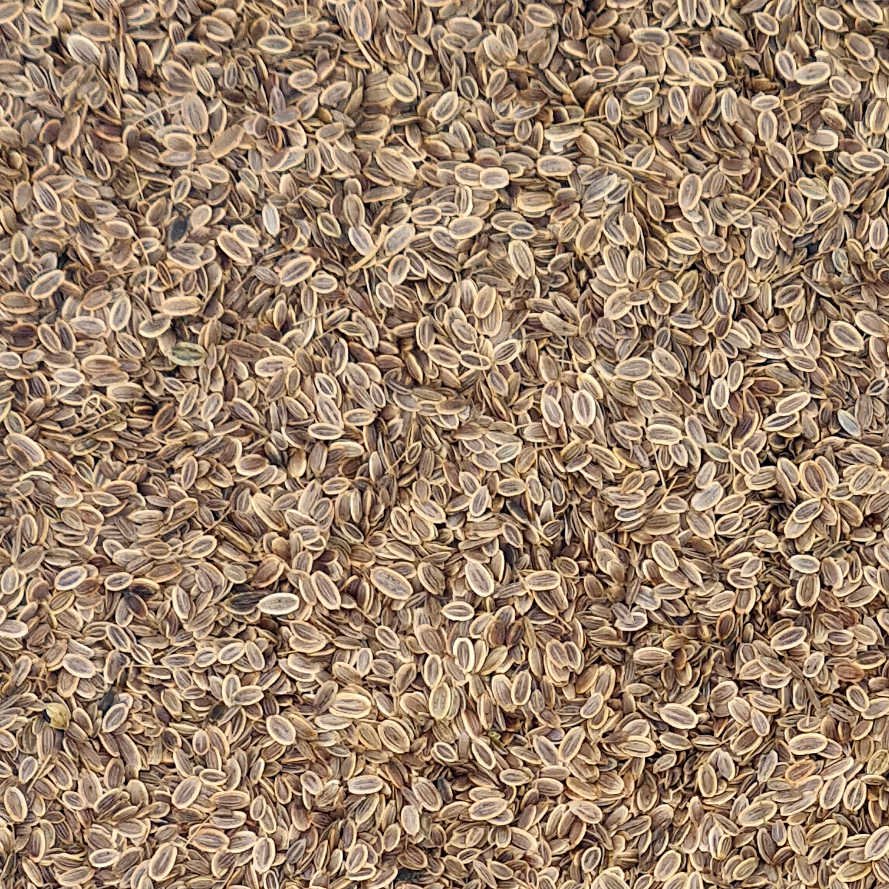Dill seeds are the seeds of the dill plant (Anethum graveolens) and are often used as a seasoning in human cooking. However, they are also a suitable dietary supplement for some rodents and birds. Here is some information about them:
Minerals, vitamins and nutrients:
Dill seeds are a source of various vitamins and minerals, including vitamin A, vitamin C, vitamin K, as well as minerals such as iron, calcium and magnesium. They also contain essential oils that give dill its characteristic taste and smell.
Importance for various animals:
Dwarf hamster, golden hamster, teddy hamster:
Dill seeds can be given in small amounts as a treat, but they should not be the main food source. They provide some nutrients and variety in the diet.
Rats, coloured mice, gerbils:
These rodents may occasionally eat dill seeds, but again they should only be considered as an occasional snack. They contribute to a varied diet.
Chinchillas, degus:
Chinchillas and degus should not be given much dill seed. Their diet should consist mainly of dried herbs, high quality food mixes and small amounts of fresh vegetables.
Guinea pigs:
Guinea pigs may enjoy small amounts of dill seed occasionally, but it should not be given too frequently. The main diet for guinea pigs consists of hay, vegetables and treocknetted herbs.
Rabbits:
Rabbits can be given dill seeds in moderation, but they should not become a main part of their diet. Fresh food, hay, vegetables and suitable herbal mixes are more important.
Parrots and parakeets (budgerigars, cockatiels, agapornids, sparrow parrots):
Dill seeds can serve as a treat for parrots and parakeets. They provide a small amount of vitamins and minerals. Nevertheless, the main diet of these birds should be a balanced mix of seeds, fresh fruit and vegetables.
Finches (zebra finches, canaries, amadiums):
Dill seeds can be offered as a treat in limited quantities, but they should not be given in excess. A balanced finch diet consists of high quality finch food and fresh vegetables.
In summary, dill seeds can serve as an occasional treat for some rodents and birds to enrich their diet.





